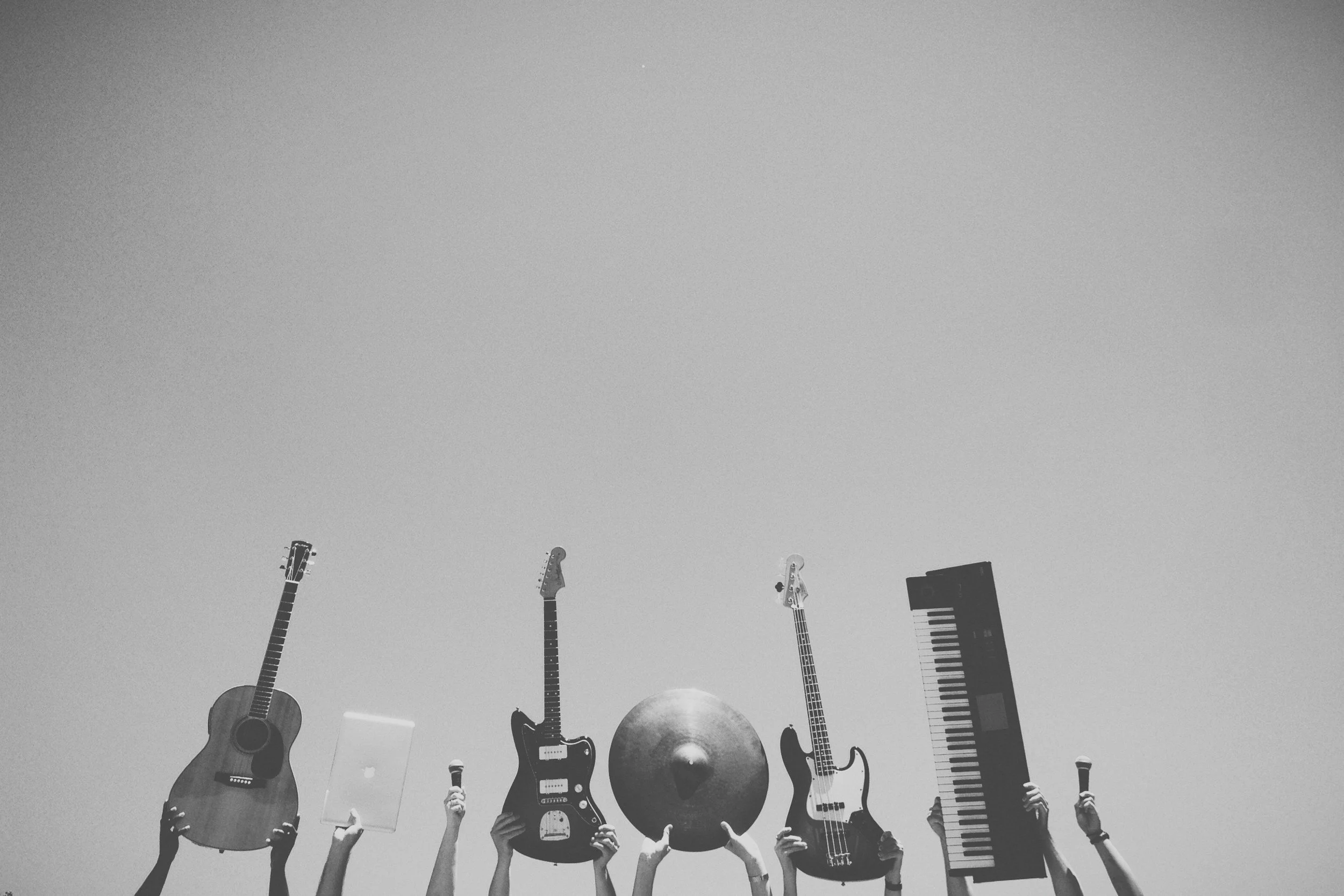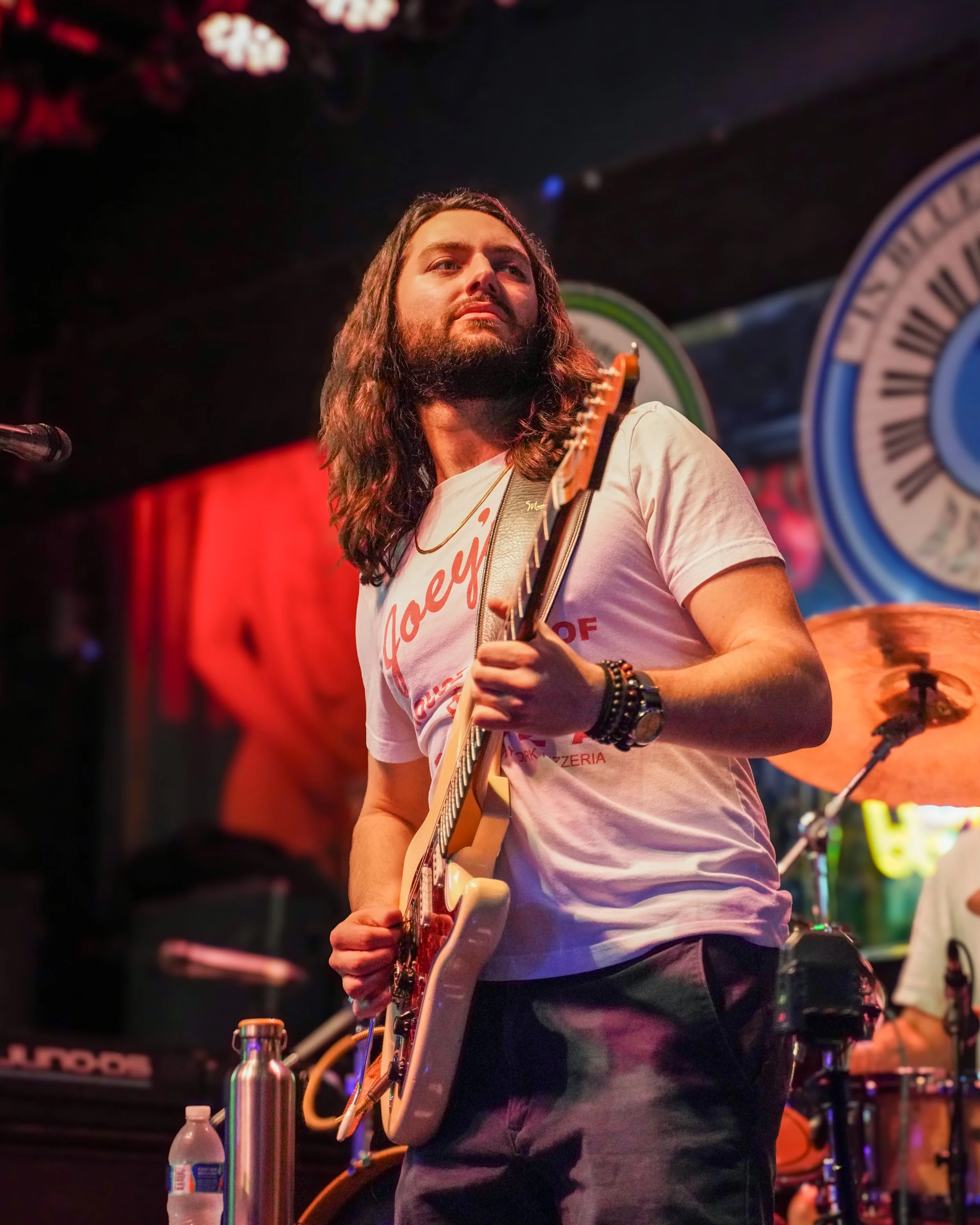Lessons
*
Mentorship
*
Lessons * Mentorship *
Book a Guitar Lesson With a Nashville Pro
I’m looking to mentor more students that are passionate about learning their craft and want more from learning than the cookie cutter “online lesson library” approach. I’m looking for students to share a mutual passion about advancing our guitar skills. I’m looking for students who want to help learn about what it means to be an expressive guitar player - and it’s a lot more than just music theory.
Book an online guitar lesson from a working Nashville guitar player via Zoom.
Beginner, intermediate, advanced player, any level - there’s always more to learn. Let me help you find a new part of your musical voice.
Specialty in R&B/soul, pop, blues, rock, and acoustic. We don’t just play country in Nashville!
Any setup that I can hear you will work perfectly.
My Approach
My approach to teaching is to explain things using simplicity. I’ve learned how to play many styles of music and all the most profound advice I’ve received has always been simple and positively shifted my playing and mindset. I’ve spent weeks studying at Victor Wooten’s Center for Music and Nature and my time there showed me how simple music can be.
He always taught me that “if things can’t be explained simply, you don’t know it well enough”. While a fundamental knowledge of music is essential, that’s not all music is about. Music to me is about expression. The good news is that there’s countless examples (in all genres) of musicians that had very little music theory knowledge - yet they were extremely expressive and became globally known musicians. Eric Clapton, Hendrix, B.B. King, Robert Johnson, the Beatles, so many others.
These names are famous - yet how is it that they can emotionally move millions of people, without theory? The reason is that they understood how to play with emotion, feeling. I can teach you how I learned to play with feeling. Many people say that you can’t teach feeling. Kind of. Nobody can teach somebody to feel sad if they’ve never felt sad. But what I can teach you is how I connected the emotions that I already experience, into my music. That’s what makes music powerful. That’s what most people mean by “playing with feeling”.
Being a “Natural”
To be natural on your instrument means you can freely express yourself. Everyone can be a natural, if we can find out how to get out of our own way. When people compliment you and say that you’re a “natural”, they’re really saying that you are like nature. Nature doesn’t compete with anyone, overthink things, have an ego, it exists in it’s own flow and is beautiful because of it. So that means that in order to express ourselves we have to get out of our own way so that we can play like ourselves and be natural.
I don’t discount music theory; I know it well and use it every day. It helps create repeatable results, can really take the “mystery” out of those baffling lead lines or chord progressions and is essential to know. In today’s education, theory an absolute staple. But it’s important to remember it’s still theory. Unproven and open to interpretation. It’s unproven because how can you prove something that’s intangible? We can’t hold sound waves in our hands.
“You practice technique to get your fingers to go where you want them to go. You practice theory to understand where they can go, and why.” - Tom Morello
I say all this to point out that theory isn’t all there is. It’s essential to understand how music moves, but music isn’t about theory. Theory is a stepping stone to greater self-expression, but doesn’t equal expression. Theory helps us understand music, it helps us be more efficient in our practice and can keep us from floundering in confusion for long periods of time. When you can understand why you should put your finger on the 12th fret (instead of the 11th fret), we know that we’re making progress to being our own teachers so we can move through music independently and make our own choices.
My goals for my students is to help them be independent when playing and to provide clarity along their musical journeys. To encourage the feedback loop of joy that we as players get when we play something that sounds really good. Playing music is a game of catch between joy and sound: when we play something that sounds good, then we get this sense of joy because it sounds so good, and because it sounds go good - that makes us play with more emotion/excitement, which makes it sound better, then it repeats.

If any of this resonates with you, I’d love to hear from you. I’d love to connect so that I can add value and help you get over those musical plateau that drive us all crazy.
-$90/hour. Payments accepted on Venmo/Paypal/Cashapp before the lesson.
Free Downloads
Beginner’s Starter Kit
A great foundation for beginner guitarists. Simplified and full chord charts for open position so you can start playing right away. Common chord progressions, string names and extra chord charts for your own use. (PDF)
“Uptown Funk” concepts & Breakdown (E-book)
A look into the the concepts behind the “Uptown Funk”, gospel/funk/R&B lesson
R&B Chords in Db major
Some of my go-to chords when I’m improvising. (PDF)
(Play through them top-to-bottom to see how they move)
R&B Chords in G major
Some of my favorite chords to play in G major. (PDF)
(Play through them top-to-bottom to see how they move)
2 Most Common R&B Changes
Here I discuss the two most common R&B chord changes that are seen on tons of contemporary R&B, gospel and pop songs. The 7-3-6, and the 5-1-4 progressions. (PDF)










